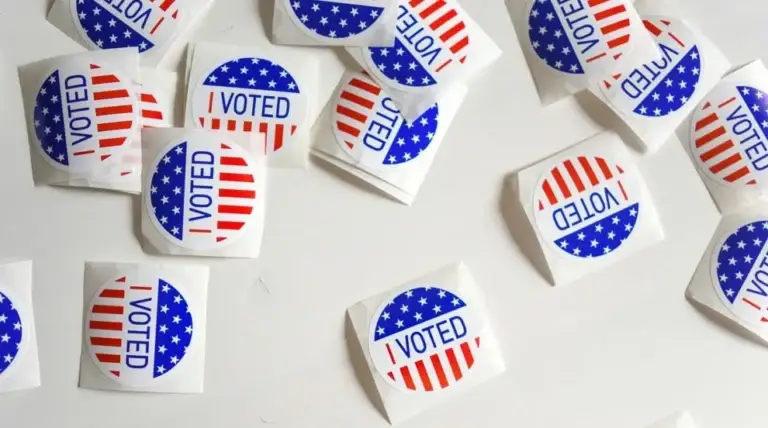(The Center Square) − Louisiana’s Legislature convened Thursday to fast-track a package of election bills that would shift the state’s 2026 congressional election calendar back by one month while the U.S. Supreme Court weighs a closely watched challenge involving the Voting Rights Act and the state’s current congressional map.
What was touted as a a “simple bill” ended up being charged as “rigging an election” by Sen. Gary Carter, D-New Orleans. The committee recessed upon the charges by Carter.
The committee reconvened to vote later on and the bill passed five to three.
Sen. Caleb Kleinpeter, R-Port Allen, chairman of the Senate and Governmental Affairs Committee and is carrying the lead measure, said the goal is to give the justices time to rule without locking Louisiana into its existing map under the so-called Purcell principle, a judicial caution against changing election rules too close to an election.
“If we don’t do what we’re doing here, then the Purcell principle could take effect and we would be stuck with the current map,” Kleinpeter said in an interview. “We’re just trying to give the Supreme Court enough time to make a decision.”
Under Kleinpeter’s bill, the April congressional primary would move to May, and the May runoff would move to June.
The change would also push candidate qualifying from mid-January to mid-February, with nominating petitions due 20 days before qualifying.
“It’s pretty simple,” Kleinpeter told colleagues ahead of a committee hearing. “All we’re doing is changing the dates – making the April election go to May, and the May to June.”
Kleinpeter said the “drop-dead” date to deliver a new map to the secretary of state is Jan. 13, and suggested the court could act by mid-December, noting Texas has an earlier election schedule.
“Texas has an election before ours and that’s why we think the court might come back by mid-December with a verdict,” Kleinpeter said.
Democrats countered that Republicans are moving too fast and risking voter confusion and additional costs.
“We need to make sure this process is as transparent as possible,” said Rep. Edmond Jordan, D-Baton Rouge. “We objected to the suspension of the rules. I think the goal for the Republicans is to make this process as quick as possible, to make it as muddled as possible.”
Jordan said moving the dates is “ultimately done with the intent” to redraw maps in a way that could dilute minority voting strength.
He also called the session premature.
“The Republicans hope the court will rule before Dec. 8. If that doesn’t happen this is all for nothing. We’ll see what happens,” Jordan said.
During the SB1 hearing, Senate Minority Leader Sam Jenkins, D-Shreveport, warned the bill would “throw the election into a state of chaos,” arguing it effectively asks lawmakers to ignore existing statutes that set qualifying on the second Wednesday in January.
“We are putting forth a procedure … that does not cater to equal protection and representation based upon the current laws that we have,” Jenkins said. “We are just too doggone close to the 2026 election cycle to be making changes like we’re making right now.”
Jenkins raised potential 14th and 15th Amendment concerns and said invoking Purcell could cut against the Legislature’s position.
“We change laws all the time,” Kleinpeter replied, maintaining the shift is a narrow, temporary adjustment to meet the court’s timeline.
Sen. Blake Miguez, R-New Iberia, noted the bill was drafted in coordination with the secretary of state and asked that office to address technical questions.
First Assistant Secretary of State Katherine Newsome told senators the department can implement closed party primaries in 2026 on the revised schedule and has been preparing since 2024.
Newsome said the bill, as written, is workable.
Nominating petitions “will be due on January 14, 20 days before that February 11 qualifying date,” consistent with ordinary law.
“We are ready to move forward in 2026 with closed party primaries,” Newsom said, emphasizing the department took no position on the 2024 policy shift but would carry out whatever calendar the Legislature adopts.
Carter was concerned that changing the election dates would “interfere” with the election and that such interference compromised the elections integrity. Carter grilled Newsom on whether she thought the same, but Newsom clarified that the secretary of state was prepared to conduct the election fairly and disagreed with Carter’s characterization of the bill.
“How many other states have changed from a closed primary to an open primary in this time frame?,” Carter asked. “How many states change the dates for qualifying within 90 days of an election?”
“We moved a lot of elections during 2020 and 2021, and I think even some in 2023,” Newsome said. “I’m pretty sure all of those were because of emergencies. We get special elections called all the time, and qualifying with special elections are called by the governor, and they’re often within…close proximity or called by the legislature…and we work with that.”
The court fight looming over the calendar centers on whether Louisiana’s intentional creation of a second majority-Black congressional district violates the U.S. Constitution.
The state now argues Section 2 of the Voting Rights Act is unconstitutional as applied, a sharp turn that could have national implications for redistricting and minority representation. Civil-rights plaintiffs say striking or weakening Section 2 would upend decades of precedent guarding against racial vote dilution.
“Unless we run into some problems we’re not seeing, it is just to move back the election dates back one month,” Kleinpeter said.

